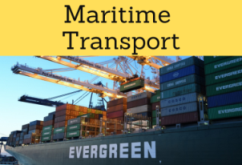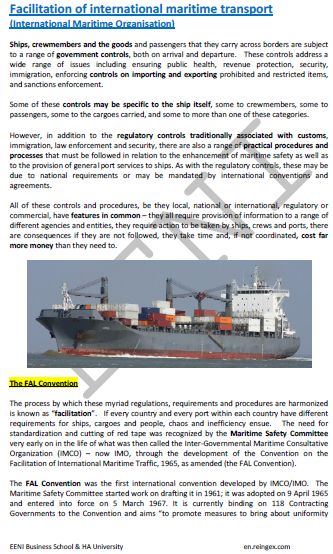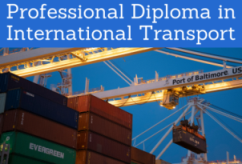International Maritime Organization (IMO)
International maritime security, FAL Convention, SOLAS, Transport of goods by Sea

The United Nations (NU) body in charge of ensuring maritime safety and avoiding maritime pollution generated by ships is the International Maritime Organization (IMO).
In order to fulfill its mission, the International Maritime Organization (IMO) establishes a series of fair and effective rules (conventions), applicable at a global level, related to safety and protection of Maritime Transport.
- Introduction to International Maritime Organization (IMO)
- Maritime Security
- Transport of goods and containers
- Cargo securing (packing)
- Fire protection
- Navigation
- Radio communications, search and rescue
- Stability and compartmentalization
- Safety rules for different types of vessels
- Maritime cyber Risk
- International maritime transport facilitation
- Convention on Facilitation of International Maritime Traffic (FAL)
- Electronic commerce applied to maritime transport facilitation
- Maritime protection and piracy
- Piracy and armed robbery perpetrated against ships
- Fight against piracy in West Africa
- Djibouti Code of Conduct
- IMO Integrated Global Maritime Information System (GISIS)
- Conventions of International Maritime Organization (IMO)
- Customs Convention on Containers
- Codes of International Maritime Organization (IMO)
Sample - International Maritime Organization (IMO):


The Subject “International Maritime Organization (IMO)” is included within the curriculum of the following academic programs at EENI Global Business School:
Logistics Courses: Maritime transport, Multimodal, Transport and Logistics in Africa.
Certificate in International Transport

Masters: International Transport, Transport and Logistics in Africa.


Languages: 
 Organización Marítima Internacional
Organización Marítima Internacional
 Organization maritime internationale
Organization maritime internationale  Organização Marítima Internacional.
Organização Marítima Internacional.
Trade Facilitation - Trade Facilitation Agreement - Kyoto Convention (Containers) - Convention Harmonization of Frontier Controls of Goods.


The International Maritime Organization (IMO) offers to main agents of Maritime Transport (ship-owners...) a sectoral regulatory framework.
The rules and regulations of International Maritime Organization (IMO) cover all sectors related to Maritime Transport: ship design and construction, manning, scrapping, ship-owners...
About international maritime transport:
- The International Maritime Organization (IMO) estimates that 80% of global transport is carried out by sea
- Nowadays, international maritime transport is the most efficient, safe and economic type for the vast majority of exported goods
Creation of International Maritime Organization (IMO): 1958
The main purpose of International Maritime Solid Bulk Cargoes (IMSBC) Code, which replaces the Code of Safe Practices for Solid Bulk Cargoes (BC Code), is to facilitate safe stowage and transport of solid bulk cargoes by providing information on the dangers associated with transport of certain types of solid bulk cargoes and instructions on the procedures to be adopted when transporting solid cargoes in bulk is contemplated.
- The International Chamber of Shipping is associated to International Maritime Organization (IMO)
- The International Bureau of Containers and Intermodal Transport (BIC) is an observer member
Conventions of International Maritime Organization (IMO)
- International Convention for the Safety of Life at Sea (SOLAS Convention)
- International agreement on cargo lines
- International Convention for Safe Containers
- International Convention for the Prevention of Pollution from Ships (MARPOL Convention)
Codes of International Maritime Organization (IMO)
- International Security Code for Port and Port Facilities (ISPS)
- Safe code of practice for storage and security of cargo (CSS Code)
- IMO / ILO / UNECE Code of Practice on the packing of transport units (CTU Code)
- International code for the protection of ships and port facilities (ISPS Code)
- International maritime code for solid bulk cargoes (IMSBC Code)
- International Maritime Code of Dangerous Goods (IMDG Code)
- International code for the protection of ships and port facilities (ISPS Code)
Member countries of International Maritime Organization (IMO): Albania, Germany, Angola, Antigua and Barbuda, Saudi Arabia, Algeria, Argentina, Armenia, Australia, Austria, Azerbaijan, Bahamas, Bahrain, Bangladesh, Barbados, Belgium, Belarus, Belize, Benin, Bolivia, Bosnia and Herzegovina, Brazil, Brunei, Bulgaria, Cape Verde, Cambodia, Cameroon, Canada, Chile, China, Cyprus, Colombia, Comoros, Costa Rica, Croatia, Cuba, Czech Republic, Democratic Republic of the Congo, Denmark, Djibouti, Dominica, Dominican Republic, Ecuador, Egypt, El Salvador, Equatorial Guinea, Eritrea, Estonia, Ethiopia, Faroe Islands, Fiji, Finland, France, Gabon, Gambia, Georgia, Ghana, Grenada, Greece, Guatemala, Guinea, Guinea-Bissau, Guyana, Haiti, Honduras, Hong Kong (China), Hungary, India, Indonesia, Iran, Iraq, Ireland, Iceland, Ivory Coast, Cook Islands, Marshall Islands, Solomon Islands, Israel, Italy, Jamaica, Japan, Jordan, Kazakhstan, Kenya, Kiribati, Kuwait, Latvia, Lebanon, Liberia, Libya, Lithuania, Luxembourg, Macao (China), Macedonia, Madagascar, Malaysia, Malawi, Maldives, Malta, Morocco, Mauritius, Mauritania, Mexico, Moldova, Monaco, Mongolia, Montenegro, North Korea, Mozambique, Myanmar, Namibia, Nauru, Nepal, Nicaragua, Nigeria, Norway, Netherlands, New Zealand, Oman, Pakistan, Palau, Panama, Papua New Guinea, Paraguay, Peru, Philippines, Poland, Portugal, Qatar, Republic of the Congo, Romania, Russia, Saint Kitts and Nevis, Samoa, San Marino, Saint Vincent and the Grenadines, Saint Lucia, São Tomé, Senegal, Serbia, Seychelles, Sierra Leone, Singapore, Slovakia, Slovenia, South Korea, Spain, Somalia, Sri Lanka, South Africa, Sudan, Syria, Sweden, Switzerland, Suriname, Tanzania, Thailand, East Timor, Togo, Tonga, Trinidad and Tobago, Tunisia, Turkmenistan, Turkey, Tuvalu, Ukraine, Uganda, UAE, UK, U.S., Uruguay, Vanuatu, Venezuela, Vietnam, Yemen, Zambia, Zimbabwe.
(c) EENI Global Business School (1995-2025)
Top of this page










 WhatsApp
WhatsApp